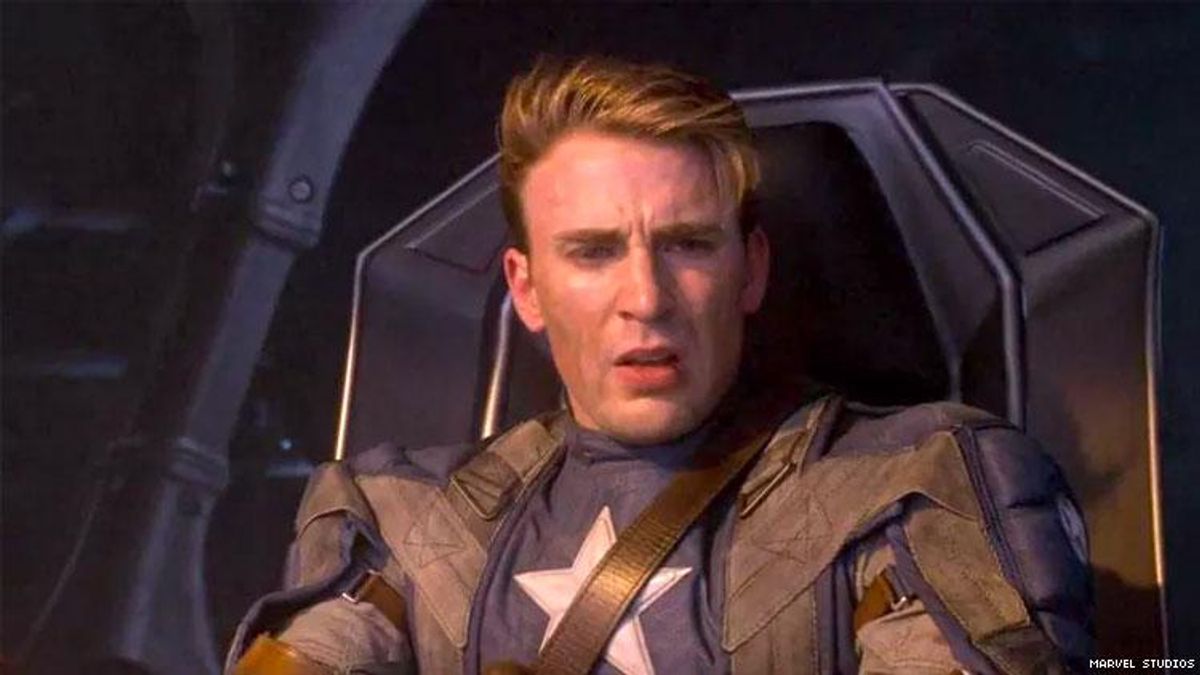Spoilers of Avengers: Endgame ahead.
In Avengers: Endgame, the funeral of one of the franchise's major heroes, Iron Man (Robert Downey Jr.), marks the end of an era in multiple respects.
In its most literal sense, Endgame is the end of the Avengers films. The Marvel franchise is the most financially successful in the entertainment industry's history, and it has changed both culture and the modern moviegoing experience for audiences.
Iron Man was the first of the Marvel Cinematic Universe's superheroes, the 2008 forefather who launched a thousand spin-offs, as well as the model for the blockbusters that would follow him. For nearly a decade afterward, movie marquees across the country lit up with the names of white straight male superheroes, whose various adventures invariably involved saving the world and getting the girl.
This is a formula that Hollywood has been banking on since time immemorial. However, recent seismic shifts in media and demographics have upended it. Social movements tied to marriage equality, Black Lives Matter, #MeToo, and #OscarsSoWhite have amplified the voices of historically marginalized people. Calls for greater representation in the media of these groups were reflected quickly on television shows and streaming platforms.
Movies -- particularly those that cost millions to finance -- move at a more glacial pace. Marvel films, by epitomizing the modern blockbuster, are a litmus test for the progress of the entertainment industry's views of diversity at large.
And by all accounts, it has been a revolutionary year for the Disney-owned studio. The releases of Black Panther in 2018 and Captain Marvel in 2019 were breakthrough moments in show business, as these productions centered on superheroes of color and women, respectively. They were both box-office hits as well, disproving the tired old myth that movies that do not star straight white men can't find an audience.
Thus, it was hard to miss the symbolism of the funeral at the conclusion of Endgame. Iron Man, the straight white man who begot the others, was laid to rest after saving the universe one last time. The emotional scene was also a star-studded reunion of the characters from the various parts of the Marvel Universe to pay their respects. In these mourners, the evolution of diversity was on full display, from Nick Fury (Samuel L. Jackson) to the Wakanda royals to Captain Marvel (Brie Larson), whose new short haircut has sparked a legion of queer fans.
The baton was clearly being passed, as it was even more literally through the storyline of Captain America, a.k.a. Steve Rogers. The character -- a white, muscled symbol of American strength from World War II -- decides to go back in time to be with the woman he loves. At his reunion with the characters in the present day, an aged Rogers gives his shield to the black hero Falcon, along with the Captain America mantle. What it means to look like a superhero -- and an American -- were both redefined in this poignant moment.
Diversity was also on the mind of the Endgame directors Joe and Anthony Russo -- so much so that Joe Russo decided to add the Marvel universe's first canon gay character in the Avengers film and play it himself.
"Representation is really important," he told Deadline. "It was important to us as we did four of these films, we wanted a gay character somewhere in them. We felt it was important that one of us play him, to ensure the integrity and show it is so important to the filmmakers that one of us is representing that. It is a perfect time, because one of the things that is compelling about the Marvel universe moving forward is its focus on diversity."
Russo's character appears in a support group for those who have survived the apocalypse that served as the film's inciting incident. He mentions his lost partner in the scene -- and it's a blink-and-you'll-miss-it moment that has some on social media complaining that the directors did not do enough to provide LGBTQ inclusivity.
However, Marvel is reportedly already looking to cast its first gay superhero. And a Marvel executive, Victoria Alonso, told Variety at the Captain Marvel premiere that "the world is ready" for one. It is only a matter of time before he, she, or they makes their appearance. Fan theories abound, but it is likely audiences have already met LGBTQ characters in the film franchise -- they just don't know it yet.
Ultimately, Endgame shows that it is the end of an era for white straight male dominion in Hollywood. The future of the Marvel universe is queer, black, and female -- and it will be even more super than before because of it.
DANIEL REYNOLDS is an editor at The Advocate. Follow him on Twitter @dnlreynolds.


















































































